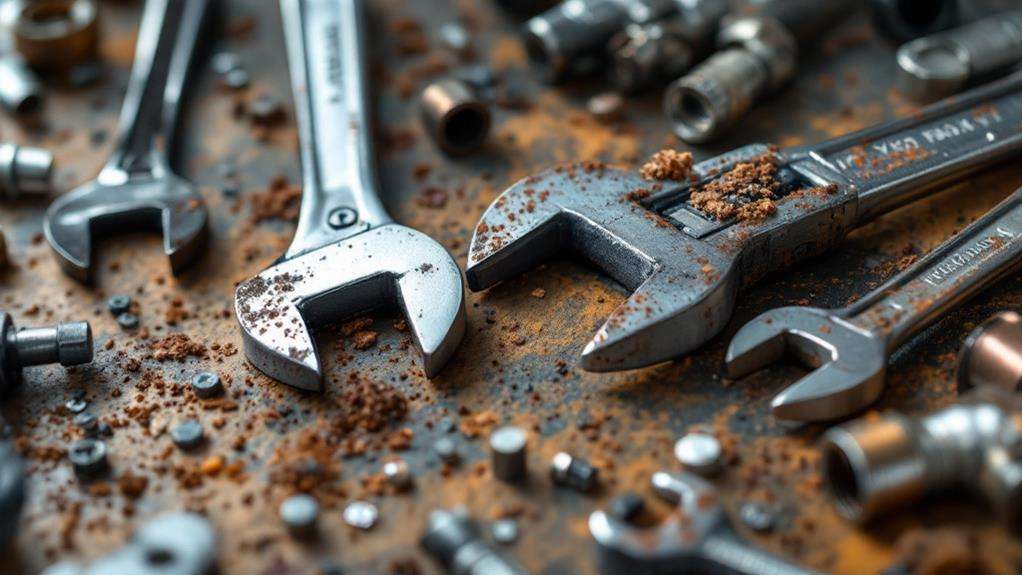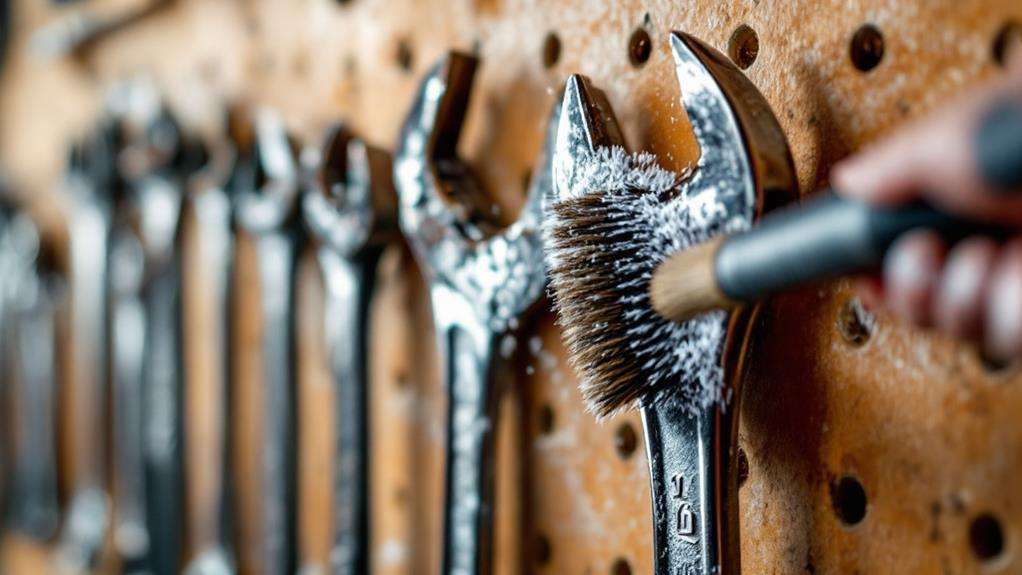How to Choose the Best Wrench for Plumbing Projects
When choosing the best wrench for plumbing projects, consider the type of task you'll be tackling. Pipe wrenches are essential for gripping threaded pipes, while adjustable wrenches offer versatility for various nut and bolt sizes. Look for features like adjustable jaws, serrated teeth, and compound-leverage handles for improved grip and force. A 14-inch adjustable pipe wrench is a good all-around size for most homeowner needs. Opt for durable materials like cast iron or quality steel from reputable brands. Don't forget to maintain your wrenches by keeping them clean, dry, and lubricated. By understanding the different types and their uses, you'll be better equipped to handle any plumbing challenge.
Types of Plumbing Wrenches
Several types of wrenches are essential for plumbing work. The pipe wrench, also known as a plumber's wrench, is indispensable for working with threaded steel and iron pipes. Its adjustable serrated jaws dig in when turned in one direction, providing a firm grip on pipes of various sizes.
You'll also find pliers crucial for plumbing tasks. Slip-joint pliers have deep teeth and adjustable jaws, perfect for gripping odd-shaped objects and turning loosely fastened nuts and bolts. Groove-joint pliers offer more versatility with five adjustable positions, making them a favorite among plumbers. For an even stronger grip, locking pliers (Vise-Grips) can be tightened around an object using compound-leverage handles.
Don't overlook the adjustable wrench, which can replace both English and metric open-end wrenches. High-quality models open and close smoothly, allowing you to tackle a variety of nut and bolt sizes with a single tool.
Each of these wrenches serves a specific purpose in plumbing work. By understanding their unique features and applications, you'll be better equipped to choose the right tool for your project, ensuring efficiency and effectiveness in your plumbing repairs and installations.
Key Features to Consider
When selecting a wrench for plumbing work, you'll want to focus on specific key features that enhance its effectiveness and durability. Contemplate the versatility of adjustable wrenches, which can replace both English and metric open-end wrenches, making them a prized addition to your toolkit. For gripping odd-shaped objects, look for pliers with deep teeth and adjustable jaws, such as slip-joint or groove-joint pliers.
Pipe wrenches are indispensable for work on threaded steel and iron pipes, featuring two serrated jaws that adjust to different pipe sizes. When choosing locking pliers, opt for those with compound-leverage handles for a firm grip, but use caution to avoid damaging pipes or fixtures.
Key features to ponder when selecting plumbing wrenches include:
- Adjustable jaw size for versatility
- Serrated teeth for improved grip
- Compound-leverage handles for increased force
- Durability to withstand frequent use
- Ergonomic design for comfort during extended use
Size and Material Selection

Selecting the right size and material for your plumbing wrench is crucial for efficiency and longevity. For most homeowner plumbing needs, you'll want to invest in a 14-inch adjustable pipe wrench. This size is versatile enough to handle various tasks while remaining manageable for most users.
When choosing your wrench's material, you'll need to weigh the pros and cons. Aluminum pipe wrenches are lightweight, making them easier to maneuver, but they come at a higher price point. Cast iron wrenches, on the other hand, are heavier but offer superior durability. For occasional use, a quality steel pipe wrench from reputable brands like Ridgid, Reed, or Lenox is an excellent choice.
Don't overlook the importance of smaller wrenches in your toolkit. 8-inch and 12-inch pipe wrenches are essential for working on smaller pipes in home plumbing systems. These compact tools can reach tight spaces where larger wrenches can't.
Specialized Plumbing Wrench Uses
Over time, plumbers have developed specialized wrenches for tackling unique challenges in their field. You'll find that each type of wrench serves a specific purpose in plumbing projects. Pipe wrenches, with their serrated jaws, are essential for working on threaded steel and iron pipes. They provide a firm grip and the force needed to turn stubborn fittings.
Adjustable wrenches offer versatility, replacing the need for both English and metric open-end wrenches. They're particularly useful when dealing with various nut and bolt sizes. Slip-joint pliers, with their deep teeth and adjustable jaws, excel at gripping odd-shaped objects and turning loosely fastened nuts and bolts.
When choosing specialized plumbing wrenches, consider the following:
- Pipe wrenches for heavy-duty work on steel and iron pipes
- Adjustable wrenches for versatility across different sizes
- Slip-joint pliers for gripping odd-shaped objects
- Groove-joint pliers for a wide range of plumbing tasks
- Locking pliers (Vise-Grips) for a firm hold, but use with caution
Maintenance and Care Tips

Proper maintenance and care of your plumbing wrenches will extend their lifespan and verify they're ready when you need them. To prevent rust, always dry your tools after each use and store them in a cool, dry place. Consider applying a thin coat of machine oil to metal parts, especially if you live in a humid climate.
Clean your wrenches regularly to remove dirt, grime, and residual plumbing compounds. Use a wire brush or steel wool to scrub away stubborn debris, then wipe them down with a clean cloth. For adjustable wrenches, keep the moving parts lubricated with a drop of oil to ascertain smooth operation.
Inspect your tools periodically for signs of wear or damage. Replace worn jaws or handles promptly to maintain ideal performance and safety. When not in use, store your wrenches in a toolbox or on a pegboard to protect them from accidental damage.
Safety Precautions When Using Wrenches
When it comes to using wrenches for plumbing tasks, safety should always be your top priority. To guarantee your well-being and prevent accidents, follow these essential safety tips when working with wrenches:
- Wear protective gloves to shield your hands from potential injuries
- Use eye wear to protect your eyes from debris or flying objects
- Verify proper lighting in your workspace to see clearly
- Secure pipes and fittings before applying force with a wrench
- Inspect your tools regularly for signs of wear or damage
